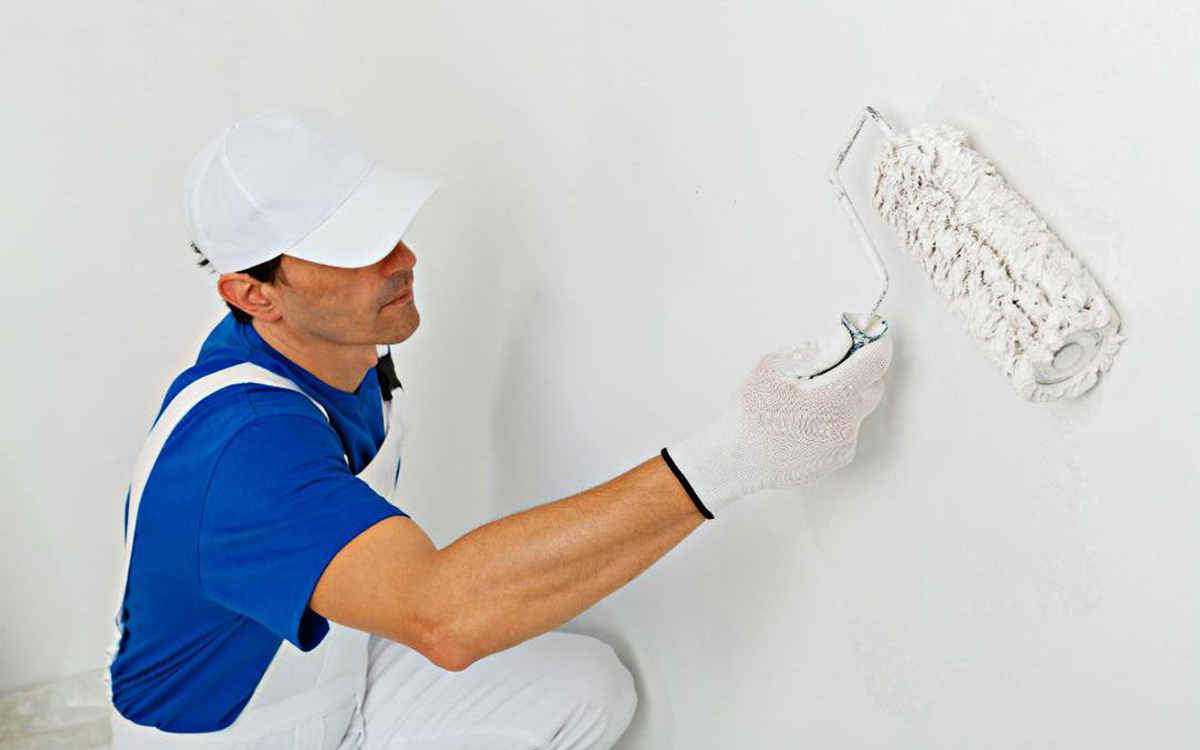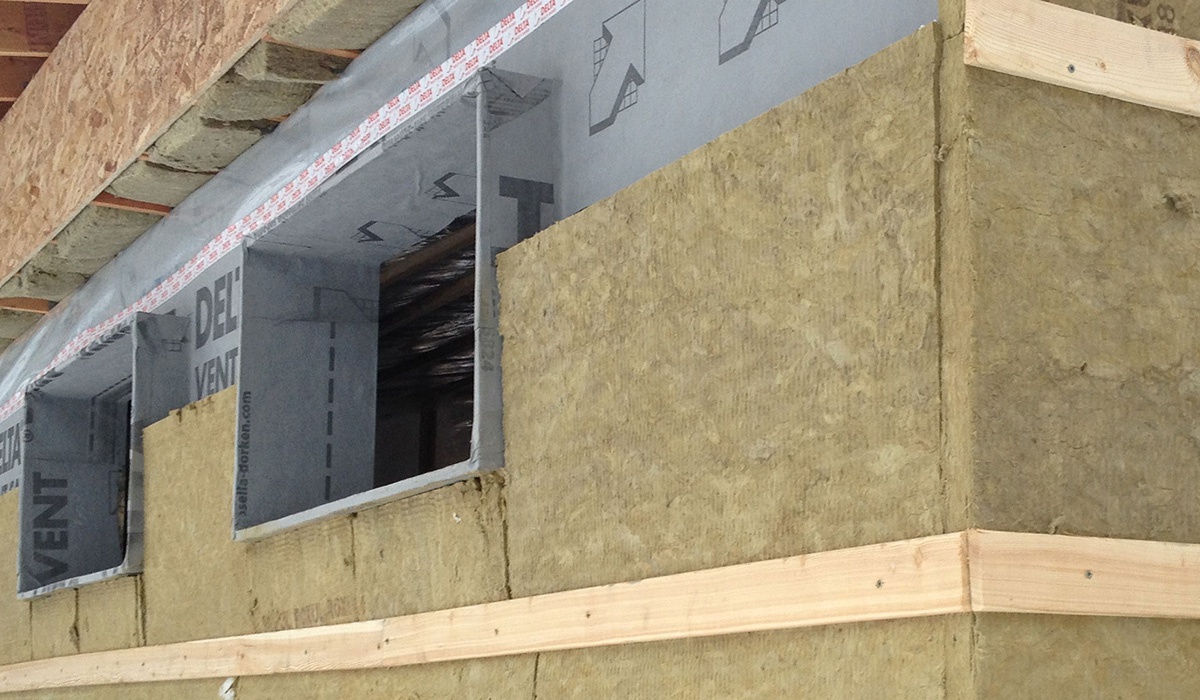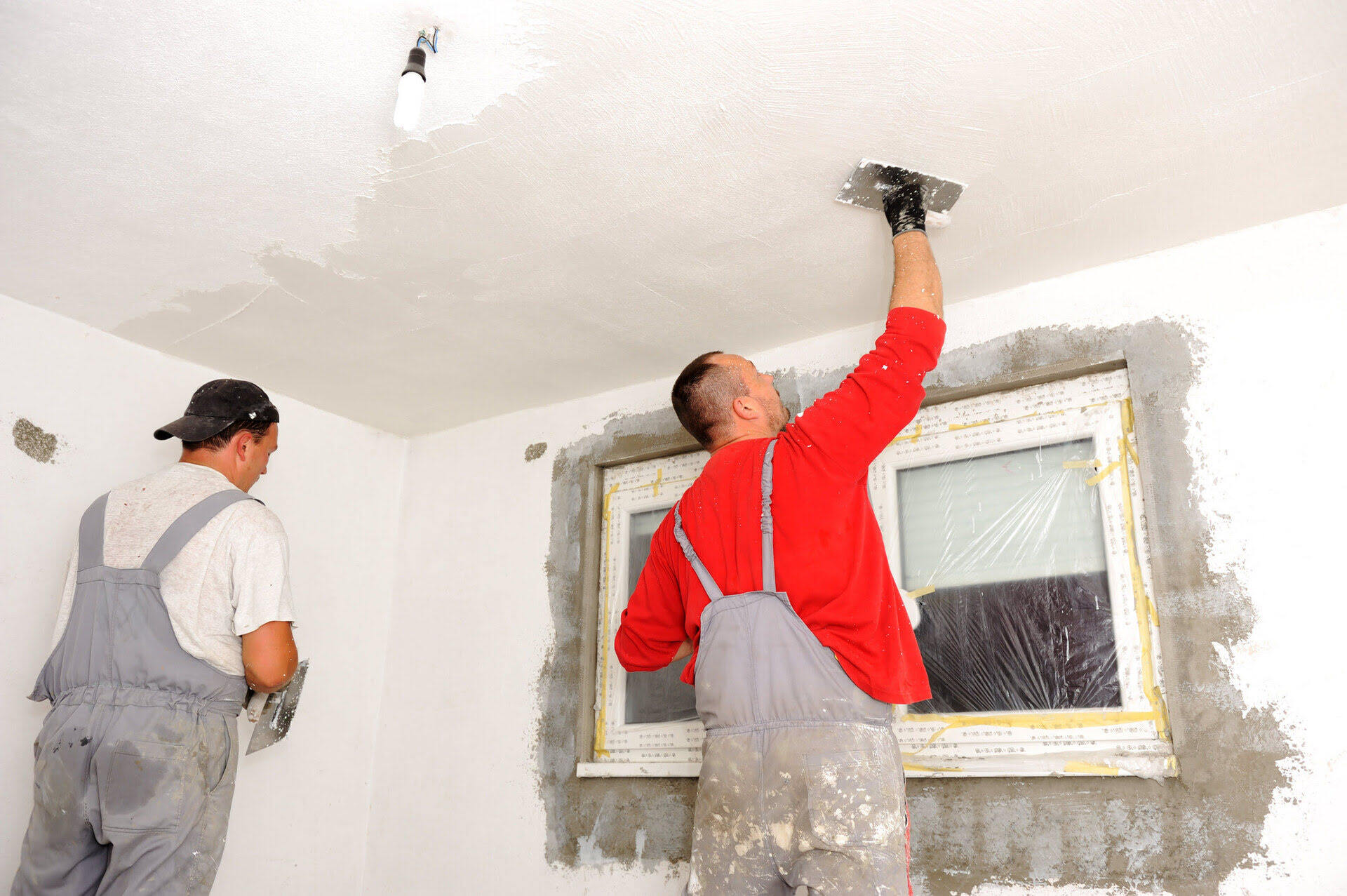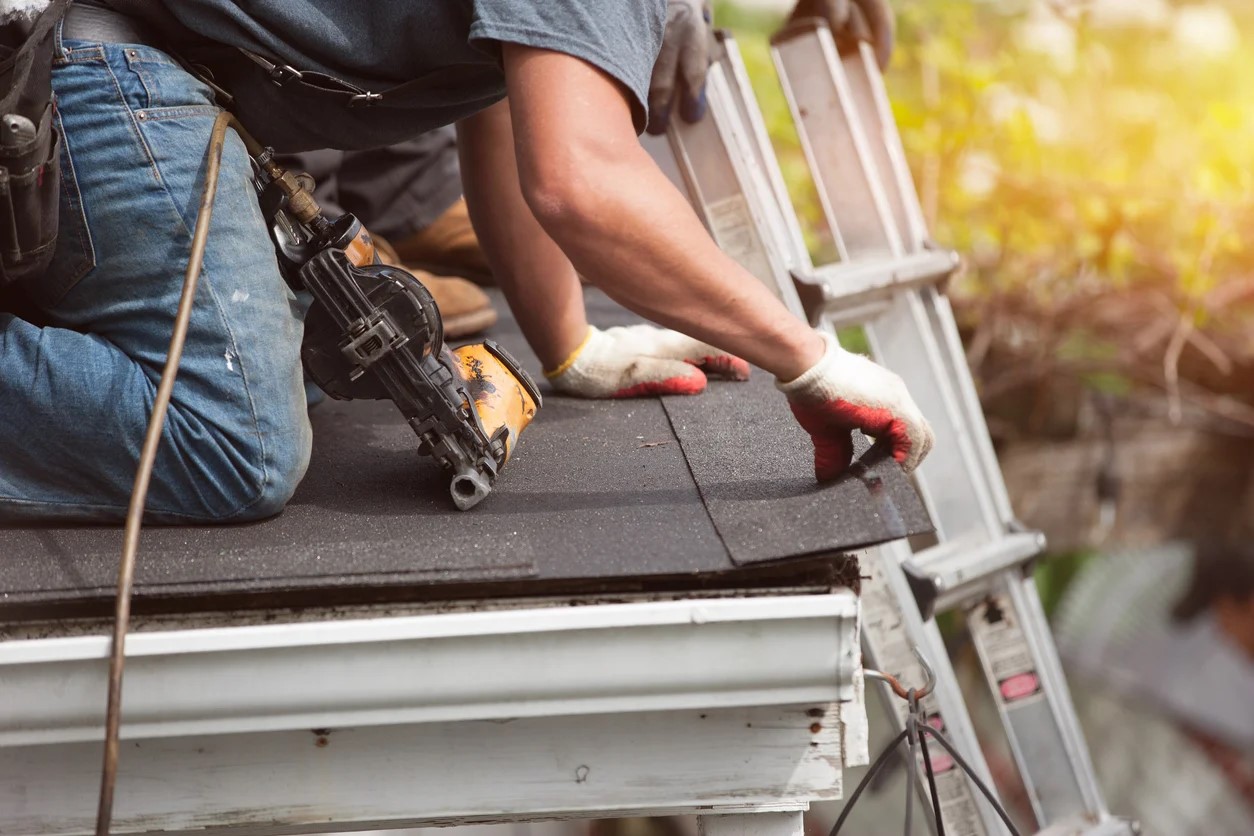Home>Renovation & DIY>Home Renovation Guides>What Information Do I Need From My Contractor On Home Improvements?


Home Renovation Guides
What Information Do I Need From My Contractor On Home Improvements?
Published: December 21, 2023
Looking for home renovation guides? Learn what information you need from your contractor for successful home improvements. Get expert tips and advice.
(Many of the links in this article redirect to a specific reviewed product. Your purchase of these products through affiliate links helps to generate commission for Storables.com, at no extra cost. Learn more)
Introduction
Embarking on home improvements is an exciting yet daunting endeavor. Whether you’re planning a kitchen remodel, a bathroom renovation, or a complete home overhaul, finding the right contractor and effectively communicating with them is crucial for a successful project. As you prepare to dive into the world of home renovations, understanding the essential information you need from your contractor is paramount. This comprehensive guide will walk you through the key details to gather from your contractor before, during, and after the renovation process, ensuring a smooth and satisfying home improvement experience.
Let’s delve into the vital information you should obtain from your contractor to set the stage for a successful home improvement project.
Key Takeaways:
- Gather essential details about your contractor’s credentials, experience, and insurance coverage to ensure they are skilled, reputable, and capable of handling your home improvement project.
- Clearly communicate project details, budget, and timeline with your contractor to establish a solid foundation for a successful and satisfying home renovation experience.
Contractor Information
Before commencing any home improvement project, it’s imperative to gather essential details about your contractor. This includes verifying their credentials, experience, and reputation in the industry. Here’s the pertinent information you should obtain:
- Licensing and Certifications: Ensure that your contractor is licensed to work in your state and holds the necessary certifications for the type of renovation you require. This demonstrates their compliance with industry standards and regulations.
- References and Portfolio: Request a portfolio of their previous work and ask for client references. This allows you to assess the quality of their craftsmanship and gain insights into their professionalism and reliability.
- Insurance Coverage: Verify that the contractor carries adequate liability insurance and workers’ compensation coverage. This safeguards you from potential liabilities in the event of accidents or property damage during the project.
- Professional Affiliations: Inquire about their affiliations with reputable industry associations or trade organizations. Membership in such entities can indicate a commitment to upholding high standards and best practices.
Gathering comprehensive information about your contractor instills confidence in their capabilities and ensures that you are entrusting your home to skilled and reputable professionals.
Project Details
Clear and detailed project specifications are fundamental to the success of any home improvement endeavor. When discussing project details with your contractor, it’s essential to articulate your vision while seeking their expertise to refine and actualize your ideas. Here are the key project details to address:
- Scope of Work: Clearly outline the scope of the project, including specific tasks to be completed, materials to be used, and any special requirements or preferences you have.
- Design and Layout: If your renovation involves design elements, such as kitchen layouts or bathroom fixtures, provide design inspirations and discuss customization options with your contractor.
- Timeline and Milestones: Establish a realistic timeline for the project, including key milestones and completion dates. This ensures that both you and the contractor are aligned on the expected timeline for each phase of the renovation.
- Budget and Cost Breakdown: Clearly define your budget for the project and request a detailed cost breakdown from the contractor. Transparency in pricing helps prevent misunderstandings and allows for effective budget management.
- Material Specifications: Discuss the specific materials and finishes you desire for the renovation. Your contractor can provide valuable input on the suitability and quality of different materials based on your preferences and budget.
By addressing these project details upfront, you and your contractor can establish a solid foundation for the renovation, align expectations, and work towards a shared vision for the completed project.
Permits and Regulations
Home renovations often require adherence to local building codes, zoning regulations, and permit requirements. It’s essential to work with a contractor who understands and complies with these regulations to avoid potential legal issues and ensure the safety and structural integrity of the project. Here’s what you need to know about permits and regulations:
- Permit Procurement: Discuss with your contractor the specific permits and approvals needed for the renovation. This may include building permits, electrical permits, plumbing permits, and more, depending on the nature of the project.
- Code Compliance: Ensure that the renovation plans align with local building codes and zoning regulations. Your contractor should be well-versed in these requirements and incorporate them into the project design and execution.
- Inspections and Approvals: Understand the process for inspections and approvals required by local authorities throughout the renovation. Your contractor should schedule and facilitate these inspections to verify compliance with regulations.
- Environmental Considerations: For eco-friendly renovations or projects that may impact the environment, discuss any additional regulations or certifications required to ensure environmental sustainability.
By addressing permits and regulations early in the planning phase, you can avoid delays and complications during the renovation process, ensuring that your project proceeds smoothly within the bounds of legal and regulatory requirements.
Before starting a home improvement project, make sure to ask your contractor for their license, insurance, and references. This will help ensure they are qualified and reliable.
Insurance and Warranties
When undertaking a home improvement project, it’s crucial to safeguard your investment and mitigate potential risks. Understanding the insurance coverage and warranties provided by your contractor is essential for peace of mind and protection against unforeseen circumstances. Here’s what you need to know about insurance and warranties:
- Liability Insurance: Confirm that your contractor carries general liability insurance to protect against property damage or injuries that may occur during the project. This insurance provides coverage for any mishaps that could impact your property or neighboring properties.
- Workers’ Compensation: Ensure that the contractor has workers’ compensation insurance to cover their employees in the event of work-related injuries. This helps protect you from potential legal liabilities arising from workplace accidents.
- Product and Installation Warranties: Inquire about the warranties provided for the materials used in the renovation as well as the contractor’s workmanship. Understanding the coverage and duration of these warranties provides assurance of the quality and longevity of the renovation.
- Contractor’s Guarantee: Discuss any additional guarantees or assurances provided by the contractor regarding the completion of the project within specified parameters and to your satisfaction.
By ensuring that your contractor is adequately insured and offers comprehensive warranties, you can proceed with confidence, knowing that your home improvement project is protected against potential liabilities and backed by quality assurances.
Read more: What Do You Need For Home Improvements?
Payment and Timeline
Establishing clear guidelines for payment schedules and project timelines is essential for a transparent and mutually beneficial working relationship with your contractor. Clarity in these areas helps prevent misunderstandings and ensures that the project progresses smoothly. Here’s what you need to consider regarding payment and timeline:
- Payment Structure: Discuss the payment structure with your contractor, including initial deposits, progress payments, and the final payment upon project completion. Ensure that the payment schedule aligns with project milestones and is documented in the contract.
- Change Orders: Understand the process for handling change orders, which involve modifications to the original scope of work or materials. Clear communication and documentation of any changes are essential to prevent disputes and maintain financial transparency.
- Timeline Flexibility: While establishing a project timeline, it’s important to account for potential unforeseen circumstances or delays that may arise during the renovation. Discuss how such situations will be addressed and the flexibility built into the timeline.
- Penalties and Incentives: If applicable, discuss any penalties for project delays and incentives for early completion. This can serve as motivation for the contractor to adhere to the agreed-upon timeline and deliver the project within the specified timeframe.
By addressing payment and timeline considerations upfront, you can foster a transparent and cooperative working relationship with your contractor, ensuring that both parties are aligned on financial matters and project milestones.
Communication and Updates
Effective communication is the cornerstone of a successful home improvement project. Establishing clear channels of communication and regular updates with your contractor is essential for staying informed and addressing any concerns that may arise during the renovation process. Here’s what you need to consider regarding communication and updates:
- Primary Point of Contact: Designate a primary point of contact on both sides to streamline communication. This ensures that queries, updates, and decisions are channeled through a single individual, preventing miscommunication.
- Communication Methods: Determine the preferred methods of communication, whether it’s through email, phone calls, or in-person meetings. Establishing communication protocols ensures that both you and the contractor are accessible and responsive throughout the project.
- Regular Progress Updates: Request regular updates on the progress of the renovation, including milestone achievements, upcoming tasks, and any potential deviations from the original plan. This allows for proactive decision-making and keeps you informed about the project’s status.
- Issue Resolution: Establish a protocol for addressing and resolving any issues or concerns that may arise during the renovation. Clear communication channels and a proactive approach to issue resolution contribute to a smoother project experience.
By prioritizing open and transparent communication with your contractor, you can foster a collaborative and responsive working environment, ensuring that both parties are informed and engaged throughout the home improvement journey.
Conclusion
Embarking on a home improvement project is a significant undertaking, and obtaining the necessary information from your contractor is pivotal to its success. By ensuring that you have comprehensive details about your contractor, project specifications, permits and regulations, insurance and warranties, payment and timeline structures, and communication protocols, you set the stage for a positive and fulfilling renovation experience.
Clear and transparent communication, coupled with a thorough understanding of the project details and contractual agreements, forms the bedrock of a successful collaboration with your contractor. Establishing a strong foundation based on mutual understanding and shared expectations empowers both you and your contractor to navigate the renovation process with confidence and clarity.
Remember, the key to a successful home improvement project lies in proactive engagement, open dialogue, and a collaborative approach. By leveraging the insights and information gleaned from this guide, you are well-equipped to embark on your renovation journey with confidence, knowing that you have the essential details to guide you through the process and achieve your desired home transformation.
Here’s to a seamless and rewarding home improvement experience!
Frequently Asked Questions about What Information Do I Need From My Contractor On Home Improvements?
Was this page helpful?
At Storables.com, we guarantee accurate and reliable information. Our content, validated by Expert Board Contributors, is crafted following stringent Editorial Policies. We're committed to providing you with well-researched, expert-backed insights for all your informational needs.















0 thoughts on “What Information Do I Need From My Contractor On Home Improvements?”